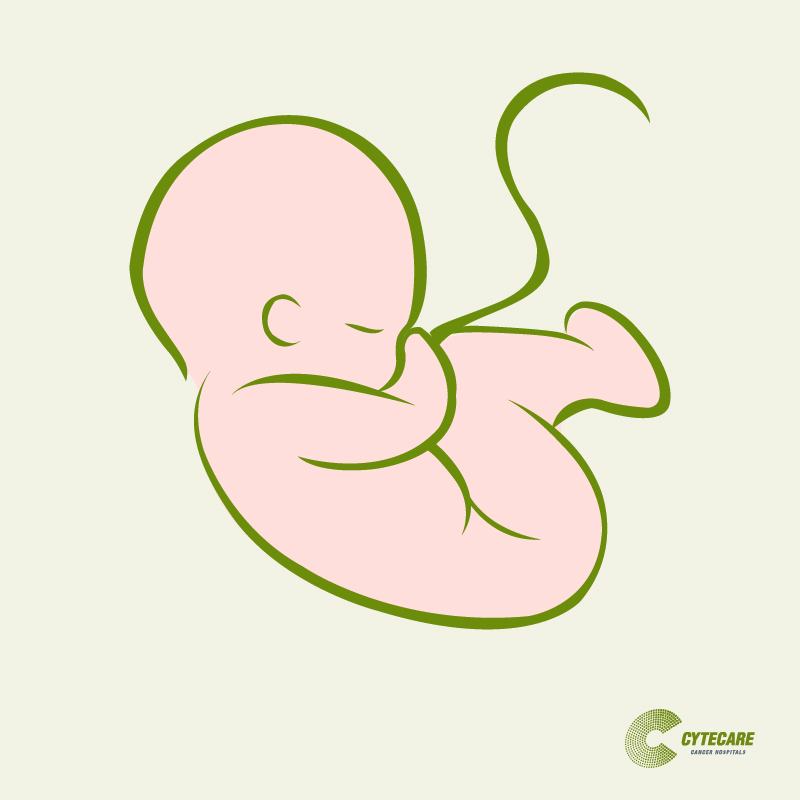
Many women want to know if they’ll be fertile after cancer therapy. Most of them want to go ahead with fertility preservation if possible durign the early stage. Gynecological and Breast malignancies account for millions of new cancer cases. While ovarian cancer is predominantly a disease of older women, it is estimated that approximately 12% of cases are diagnosed in women younger than 45 years of age. When women are diagnosed with cancer, a plethora of emotions arise and there are so many decisions to make. It can be overwhelming, especially if they want to get pregnant and have children in the future, medical decisions become even more complex.
Fertility Preservation in Gynaecological Cancers:
Today, there are various options where gynaecological malignancies have a cure for effective fertility preservation. The aim behind fertility preservation is conserving the reproductive ability of the cells, in case of the woman’s future childbearing plans. The various options with the patients opting for fertility preservation depend on their clinical diagnosis, the type and stage of gynaecological cancer.
Women often postpone childbearing for cultural, financial and professional reasons and attempt to get pregnant in their late 30s to early 40s. Young women diagnosed with cancer today have a greater chance of long-term survival than ever before. As a result, oncologists are increasingly facing the challenge of how to manage cancers in premenopausal women who desire fertility preservation for future family planning.
Traditionally, gynecological cancer is treated by radical surgery that includes the removal of uterus, ovaries and fallopian tubes with chemo or radiotherapy. The goal is to locate and remove all visible signs of cancer in a process called debulking, but this leads to definitive damage to reproductive capacity; infertility is a dramatic and frequent side effect. Fertility sparing surgery is the preservation of at least a part of one ovary and the uterus—for example, a surgery called a trachelectomy for cervical cancer removes the cervix but leaves the uterus behind. This may increase the likelihood to conceive and carry a pregnancy after cancer. Surgeries can now be performed laparoscopically through minimally invasive surgery which is a safe and adequate procedure for treating and staging early cancer. These procedures offer patients maximal chances for fertility preservation in cancer patients to make an adequate decision about future fertility.
Chemotherapy and radiotherapy have paved the way for successful cancer treatments and are indispensable components of cancer care. They act by destroying large numbers of cancer cells that rapidly divide and may have abnormal characteristics. Some Chemotherapeutic agents and Radiotherapy (pelvic radiation therapy or total body irradiation) given at higher doses and longer duration of treatment can increase the risk of infertility. This damage to the reproductive system in young cancer survivors may have long-term implications on fertility due to gonadal damage and delayed or precocious (early) puberty. For this Adaptations from Assisted Reproductive Technology (ART) field have been developed specifically to preserve the reproductive options for patients undergoing cancer treatment like egg or embryo freezing and are employed prior to chemo or radiotherapy.
Though discussions about the reproductive risks posed by cancer treatment and the options available for fertility preservations in cancer patients can be challenging, it is important to discuss options with oncologists before planning cancer treatment as they can affect fertility by impacting several biologic systems.
Depending on several factors like pre-existing medical conditions, nutritional status, whether the patient has undergone previous surgeries to treat cancer, an experienced oncologist will provide tailor-made fertility-sparing options for individual patients without compromising oncologic outcomes in women.


